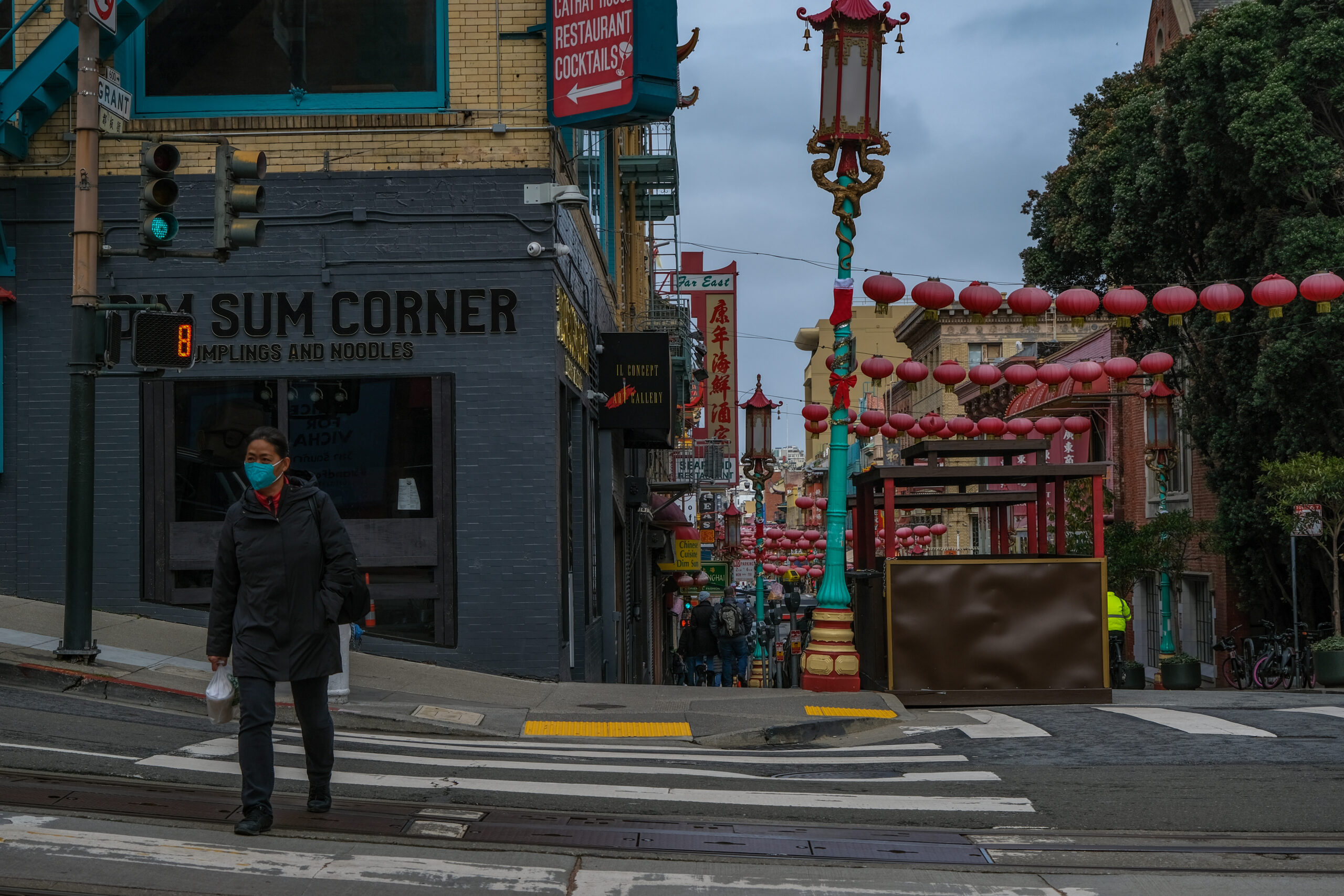When Donald Trump’s granddaughter, Arabella Kushner, sang a popular children’s song in Mandarin Chinese to Xi Jinping and his wife a few years ago, she quickly became a darling in the Chinese-speaking world–and a symbol of the language’s rise on the global stage.
But in San Francisco, the ascendance of Mandarin Chinese is a decidedly mixed blessing. Most native Chinese speakers in the city speak Cantonese, a dialect of southern China that is still widely spoken in Hong Kong and other international cities like Vancouver and Sydney–but less and less in mainland China, and among younger people everywhere.
It’s against this backdrop that Chinatown nonprofit leaders rallied last month to save a crucial lifeline for the city’s Cantonese-speaking community: language classes at City College of San Francisco (CCSF). The school started Cantonese classes in the ’60s, but they slowly shrank and were replaced by Mandarin as China gained influence and the official language gained recognition in the American education system, particularly in high school AP exams and SAT exams.
Only one City College faculty member, Grace Yu, now maintains the Cantonese program. While the school’s Chinese language department offers a variety of Mandarin classes and students can pursue Mandarin-related degrees and certificates, only one Cantonese class–for beginners–is scheduled for the 2022 spring semester. No advanced classes or degree or certificates options are available.
“Saving the Cantonese program is not only about protecting Chinese culture, language, and history,” said City College Trustee Alan Wong, a son of Hong Kong immigrants who has pushed the school to put more resources in Cantonese education since he was elected in 2020. “It is also about the very practical need to ensure that our very large Cantonese-speaking Chinese community has access to public safety, healthcare, and social services.”
Wong is drafting a proposal asking the City College administration to develop “a Cantonese specific certificate,” and coordinate with other higher education institutions for more recognition of Cantonese language education. City College is perpetually under budget stress, but even the wealthiest of colleges, such as Stanford, have been cutting Cantonese instruction in recent years.
Language, Trust, and City Services
San Francisco, a city with more than 170 years of Chinese immigration, has some 150,000 Chinese-speaking residents; about 100,000 of them are immigrants with limited-English proficiency, according to city data. The many Chinatown benevolent, family, and regional associations are still centered around Cantonese and Taishanese (Toishanese), reflecting the Gold Rush history and the fact that Southern China was long the biggest source of immigrants to the U.S.
For Doug Mei, a firefighter-paramedic and a leader of the Asian Firefighters Association who joined the City College rally, preserving Cantonese is a practical and humanitarian matter.
“As a firefighter paramedic, I often respond to emergencies in the monolingual Chinese community that includes trauma and injuries,” he said. “When victims hear me speak Cantonese, immediate trust is established and the victim is relieved.”
City data shows that his concerns are hardly academic. For the fiscal year 2019 to 2020, across all city departments, there were about 287,000 interactions with residents who had limited English proficiency. according to the data. Among them, 43.6% of the interactions were conducted in Cantonese, which is the highest requested language service and ten times more than Mandarin interactions, at about 4.1%. The data makes no mention about Taishanese, another dialect spoken in Guangdong Province and the historic Chinese community in California. Most Taishanese also speak Cantonese, so the data is likely collapsed into Cantonese. Spanish interactions were noted at 38.9%.
“San Francisco has an Equal Access to Services Ordinance mandating translated materials and language access through personnel throughout city departments,” pointed out Julie Soo, an attorney and former legislative aide to the former Supervisor Mabel Teng who proposed the ordinance.
Soo served on the Commission on the Status of Women for 12 years, and she took a 16-week course on domestic violence given in Cantonese when she was first appointed. Cantonese is the second-most requested translation for incoming 911 domestic violence calls.
“Imagine being a victim and feeling like you can’t make a report because no one can help you communicate,” Soo said.
Ling-chi Wang, a prominent Chinese American scholar and founder of the Asian American Studies program at UC Berkeley, said the growing power of China and the changing nature of the Chinese population in America were both factors in the decline of Cantonese and the triumph of Mandarin.
“The rise of China has a huge impact,” said Wang. “Before, there’s no reason to learn Mandarin, but for now ABC [American-born Chinese] are going to China for opportunities. And Mandarin becomes more universal.”
Asian politics has also played a role in Chinese immigration trends. Wang said the normalization of the US-China relations in the ’70s, the 1984 Sino-British Joint Declaration determining Hong Kong’s handover in 1997, and the Vietnam War all triggered ethnic Chinese from Taiwan, Hong Kong, and Southeast Asia to immigrate to the U.S. Now, in part because China allows people to travel more freely, an increasing number of immigrants to the U.S. are Mandarin speakers from mainland China.
It all adds up to a change in the landscape of Chinese-American identity.
“Language carries the culture, and with language and culture, then we can have an identity,” said Wang. “But identity is vulnerable, it depends on who has the power.”
“Three of my children grew up in San Francisco speaking Cantonese,” Wang said. “But now they’re all speaking Mandarin, and so are my grandchildren.”
